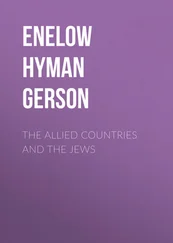Henceforth it was to be discussed quite openly. Henceforth it could only become, more and more, the chief problem of politics and give rise to that menacing situation upon a solution of which depends the security of our future.
For the Bolshevist movement, or rather explosion, was Jewish.
That truth may be so easily confused with a falsehood that I must, at the outset, make it exact and clear.
The Bolshevist Movement was a Jewish movement, but not a movement of the Jewish race as a whole. Most Jews were quite extraneous to it; very many indeed, and those of the most typical, abhor it; many actively combat it. The imputation of its evils to the Jews as a whole is a grave injustice and proceeds from a confusion of thought whereof I, at any rate, am free.
With so much said let me return to the affair.
What is called "Labour," that is, the direction of the proletarian revolt against capitalist conditions, had, as we have seen, been directed in the main by the Jew. His energy, his international quality, his devotion to a set scheme, prevailed. All this was not peculiar to Russia but present throughout the industrialized areas of the West.
By the word "directed" I do not mean any conscious plan. I mean that the Jews, with their perpetual movement from country to country, with their natural indifference to national feeling as a force counteracting class feeling, with their lucid thought and their passion for deduction, with their tenacity and intellectual industry, had naturally become the chief exponents and the most able leaders. They formed, above all, the cement binding the movement together throughout the world. It was they, more than any others, who insisted on a clear-cut solution upon the lines which their compatriot Karl Marx had copied from his greater European contemporaries, and made definite in his famous book on Capital.
But there was all the difference in the world between this intellectual leadership, this organization of socialism by Jews while Socialism still remained a mere theory , and the control and actual management of it in a great State when it passed from theory to practice.
The words "social revolution" were still but words in 1914 and men did not take them too seriously. But when in 1917 a socialist revolution was accomplished suddenly at one blow, in one great State, and when its agents, directors and masters were seen to be a close corporation of Jews with only a few non-Jewish hangers-on (each of these controlled by the Jews through one influence or another), it was quite another matter. The thing had become actual. The menace to national traditions and to the whole Christian ethic of property was immediate. More important than all, so far as the Jewish problem is concerned, many who had remained silent upon it on account of convention, avarice or fear, were now compelled to speak. From that moment, in early '17, it became the chief political problem of our time: coincident with, intimately mixed with, but in all its implications superior to, the great economic quarrel on to which it was now grafted.
The story may be briefly told. The Russian State, ill-equipped for modern war, had passed during the end of the year 1916 through a strain which it had found intolerable. Russian Society, after the mortal losses sustained, was upon the eve of dissolution, and the formidable revolutionary movement which had for years left its direction and organization in Jewish hands broke out, for the third time in our generation: but this time successfully.
After rapidly accelerating phases it settled into the situation which has endured from the early part of 1918 to the present day. In the towns the freely-elected Parliament was repudiated and a "Dictatorship of the Proletariat" was declared. The workshops were in future to be run by Committees, in the Russian "Soviets," and similar organizations were to control agriculture in the villages, where the peasants had already seized the land and were streaming back from the dissolved armies to their homes.
In practice, of course, what was set up was no proletarian Government, still less anything so impossible and contradictory in terms as a "dictatorship" of proletarians. The thing was called "The Republic of the Workmen and Peasants." It was, in fact, nothing of the sort. It was the pure despotism of a clique, the leaders of which had been specially launched upon Russia under German direction in order to break down any chance of a revival of Russian military power, and all those leaders, without exception, were Jews, or held by the Jews through their domestic relations, and all that followed was done directly under the orders of Jews, the most prominent of whom was one Braunstein, who disguised himself under the assumed name of Trotsky. A terror was set up, under which were massacred innumerable Russians of the governing classes, so that the whole framework of the Russian State disappeared. Among these, of course, must specially be noted great numbers of the clergy, against whom the Jewish revolutionaries had a particular grudge. A clean sweep was made of all the old social organization, and under the despotism of this Jewish clique the old economic order was reversed. Food and all necessities were controlled (in the towns) and rationed, the manual labourer receiving the largest share; and none any share unless he worked at the orders of the new masters.
The agricultural land was in theory nationalized, but in practice the Jewish Committees of the towns were unable to enforce their rule over it, and it reverted to the natural condition of peasant ownership. But the Jewish Committees of the towns were strong enough to raid great areas of agricultural production for the support of themselves and their troops and of their dependants in the cities, who had come close to starvation through the breakdown of the social system.
What followed later is of common knowledge: the attempts at counter-revolution, led by scattered Russians and other military leaders, all failed because the peasants believed that their newly-acquired farms were at stake and eagerly volunteered to defend them, the greatly increased misery of the towns, the slow decline of industrial production (in spite of the most rigid despotism, enforcing conscript labour), and the general deliquescence of society.
If the motives of the men who thus brought the whole of a Christian State into ruins within a few weeks were analysed, we should, it is to be presumed, discover something of this sort: their main motive was the pursuit of the political and economic ideals of which they were the spokesmen and which already so many of their compatriots, the Jews, throughout the rest of Europe, had espoused—communism so far as property was concerned; the Marxian doctrine of socialist production and distribution; the Socialist doctrine imposed by arbitrary and despotic arrangements, favouring those who had in the past been least favoured. In this economic and political group of motives the leading motive was probably enough, the doctrine of Communism in which these men, for the most part, sincerely believed.
To this must be added an equally sincere hatred of national feeling, save, of course, where the Jewish nation was concerned. The conception of a Russian national feeling seemed to these new leaders ridiculous, as, indeed, the conception of a national feeling must seem ridiculous to their compatriots everywhere; or, if not ridiculous, subsidiary to the more important motives of individual advantage and to the righting of such immediate wrongs as the individual may feel. The Christian religion they naturally attacked, for it was abhorrent to their social theory.
They also had a certain crusading, or propagandist, ideal running through the whole of their action—the desire to spread Communism far beyond the boundaries of what had once been the Russian State. It is this which has led them to intrigue throughout Central, and even in Western, Europe, in favour of revolution.
Читать дальше












